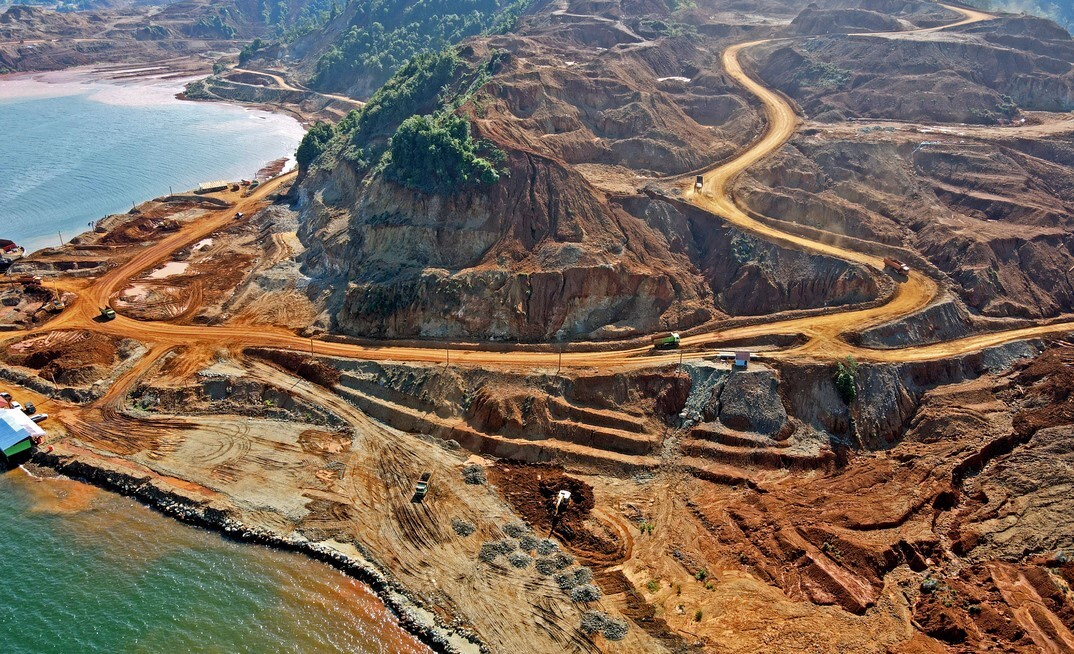As global demand for electric vehicles (EVs) and clean energy technologies continues to rise, critical minerals such as nickel, copper, and cobalt have become increasingly central to geopolitical and economic strategies. Indonesia, which accounted for over 55% of the world’s refined nickel supply in 2023, is projected to dominate 74% of the market by 2028, solidifying its position as a key player in the global critical minerals landscape.
Indonesia’s Coordinating Minister for Economic Affairs, Airlangga Hartarto, has stated that the US is showing strong interest in strengthening its partnership with Indonesia in the field of critical minerals. Indonesia holds substantial reserves of nickel, copper, and cobalt, making it a key player in the global supply of these strategic resources. Developing cooperation in critical mineral processing between Indonesia and the US is thus a significant opportunity.
According to the Head of Research at Kiwoom Sekuritas Indonesia, the US is particularly targeting Indonesia’s nickel supply chain, especially its role in EV battery production, as part of its efforts to secure access to critical minerals. In response, Indonesia has offered long-term offtake agreements to American companies and aims to position itself as a processing hub through downstream industry incentive programs.
As integral parts of the EV battery and critical metal supply chains, materials exported by Indonesian companies have attracted strategic attention from the US. This creates an opening for Indonesia to form strategic alliances with US partners such as Tesla and Ford to ensure long-term supply security. In turn, Indonesia can push forward nickel diplomacy as part of broader trade negotiations, leveraging its position as a key supplier of strategic minerals.
Since 2020, the Indonesian government has banned the export of raw nickel ore and mandated domestic processing to increase value-added output through downstream industrialization. This policy has driven massive smelter development in Indonesia, producing outputs like nickel pig iron and ferronickel, primary inputs for stainless steel production.
Over time, the industry has expanded to include smelters that produce mixed hydroxide precipitate (MHP), which can then be refined into nickel sulfate and cobalt sulfate. These materials serve as core components in the production of EV batteries. Currently, China remains Indonesia’s primary market for these downstream nickel products, and Chinese investment continues to dominate the development of nickel smelters in the country.
However, concerns about economic pressure and potential domestic slowdown in China are raising uncertainties for Indonesia’s economic interests particularly in key commodities such as nickel, coal, and copper. A projected decline in commodity prices could negatively impact state revenue and export performance. In this context, Indonesia has the opportunity to diversify and tap into new markets in the US
One of the key highlights in the latest US-Indonesia trade deal involves US President Donald Trump’s remarks. He emphasized that Indonesia possesses exceptionally high-quality copper, which the US intends to utilize for its industrial needs. Trump also spotlighted other valuable Indonesian commodities, such as rare earth elements and other high-grade materials. As part of a broader trade negotiation, Trump requested full access to Indonesia’s key mineral exports including copper and rare earths.
According to data from Indonesia’s Central Statistics Agency, in 2024, Indonesia exported 22,838.63 tons of copper ore and concentrate to the US, valued at USD $1,517 million. This export figure reflects the substantial potential for strategic cooperation between the two countries in the field of critical minerals.
Given this context, Indonesia has the opportunity to broaden its market reach, reduce dependency on a single trading partner, and strengthen its global position in the critical mineral supply chain, especially in sectors related to electric vehicles and clean energy technologies. The progressing tariff negotiation reflects a broader shift toward a structural alignment between Indonesia and the US, moving from punitive trade measures toward strategic trade and resource partnerships.
For Indonesia, the potential gain is a stronger position as a global supplier and investment destination. For the US, access to Indonesian nickel, copper, cobalt, and rare earths offers strategic autonomy and supply security in the clean energy era. The trade deal, when finalized, would represent a pivotal juncture in reshaping supply chains for critical minerals, diversifying global partnerships, and aligning investment with environmental and governance standards.
Translindo stands ready to be a trusted logistics partner by combining deep expertise in export-import regulations, customized freight solutions, and a proactive approach to market changes. We offer clients the confidence to expand, adapt, and seize new opportunities in both established and emerging sectors that drive growth across borders.

